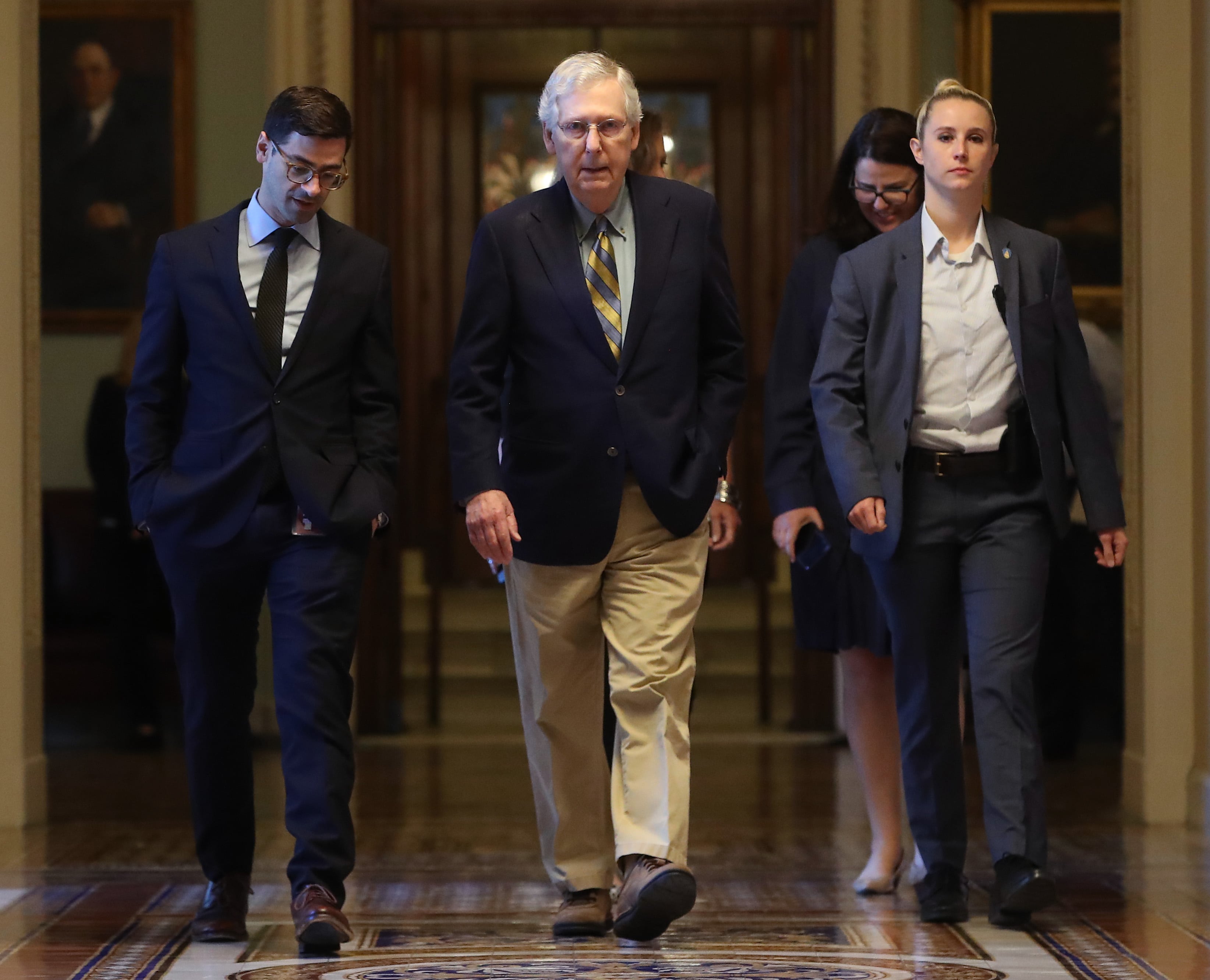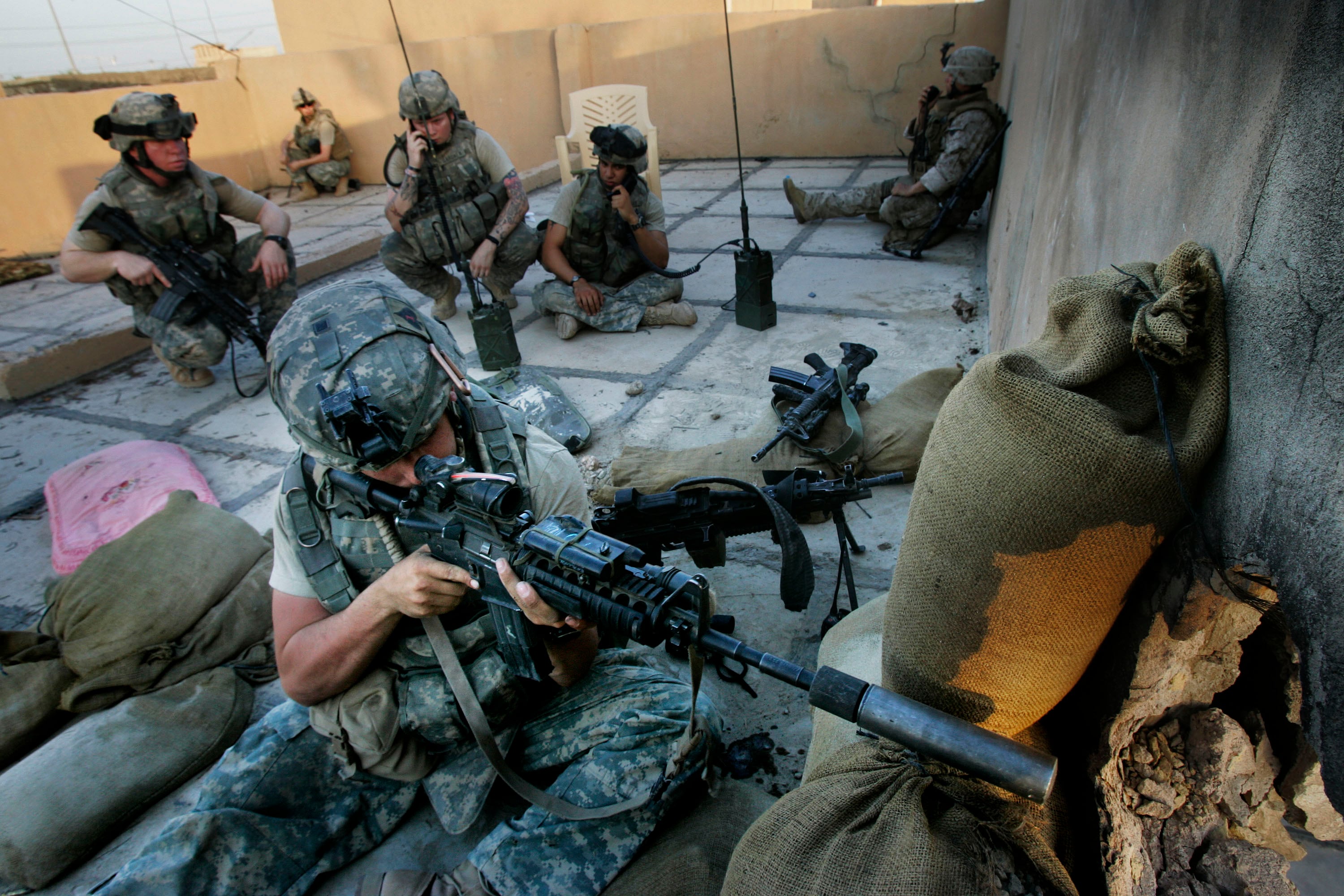In today’s hyper-partisan climate, it is rare for a majority of Americans to agree on anything, let alone something as important to our country’s future as foreign policy. Yet, it’s happening.
Our organizations, Concerned Veterans for America and VoteVets, are doing just that. We have historically clashed during election cycles and bitterly debated how the Department of Veterans Affairs can best serve our nation’s veterans. Yet, we are setting differences aside to advance a more restrained American foreign policy.
With the U.S. role in the world at the forefront of public discussion, it is clearer than ever the majority of Americans support a new approach abroad. Much like the partnership between our two organizations, we believe Americans are willing to reject partisan labels in favor of resolving endless wars, removing troops from Syria and Afghanistan, and pursuing a foreign policy that deters threats and encourages mutually beneficial trade and diplomacy.
And not only do many Americans agree our military should be less engaged abroad, but this sentiment transcends even the deepest of partisan divides, manifesting itself in a growing movement in the halls of Congress.
To further these goals, we are urging Congress to reclaim its constitutional role in authorizing military action abroad and to ensure such a weighty responsibility does not rest solely with the executive branch. With elected representatives vigorously debating U.S. involvement in the world, American interests and the well-being of its citizens will be more thoroughly considered.
In short, an engaged Congress is more accountable to its constituents, more responsible for American security, and more invested in our economic prosperity.
Fortunately, we are seeing hopeful signs that Congress may begin to reassert itself.
RELATED

Earlier this year, and for the first time ever, Congress used the War Powers Act to demand an end to American support for the Saudi-led war in Yemen.
Also, the House of Representatives passed a measure to repeal the 2001 Authorization for Use of Military Force (AUMF) — the law passed after 9/11 that authorized military force in Afghanistan, but which has been used by three presidents to justify military action in 14 countries.
One of the most significant moves toward restoring the balance of power was the passage of a measure that would effectively bar the president from taking offensive military action against Iran without approval from Congress. Cosponsored by two unlikely allies, Reps. Matt Gaetz, R-Fla., an outspoken Trump supporter, and Ro Khanna, D-Calif., a co-chair of Sen. Bernie Sanders’ presidential campaign, this provision would enforce the law, by making clear that the president has no authority to use any existing AUMF to launch an offensive attack against Iran, requiring Congress to debate, approve and authorize offensive military action against that country.
A similar measure received the support of half the Senate. Unfortunately, too many members chose to continue the status quo instead of facing the hard issues and difficult decisions.
RELATED

A majority of members in both the House and Senate have now voted in support of restricting the executive branch and reasserting the legislative branch in matters of war, just as the Constitution outlines.
Alongside Congress, the American people are largely united in their desire for fewer wars, and a recent poll shows they don’t support a war with Iran. Accordingly, it is critical that members of the NDAA conference committee fight to keep the House-passed Khanna-Gaetz amendment in the final report. Not only would it be a big step toward restoring the constitutional checks and balances that would lead to a more restrained foreign policy, it’s what the American people want.
Rethinking U.S. foreign policy is no simple task. It takes strong, principled leaders willing to honestly evaluate the implications of such significant decisions as sending men and women into battle. Little by little, through measures like the Khanna-Gaetz amendment, our lawmakers can ensure the American people are not unnecessarily embroiled in another endless war that doesn’t serve our national interests or make us any safer.
Nate Anderson is executive director of Concerned Veterans for America. Jon Soltz is chairman of VoteVets.




